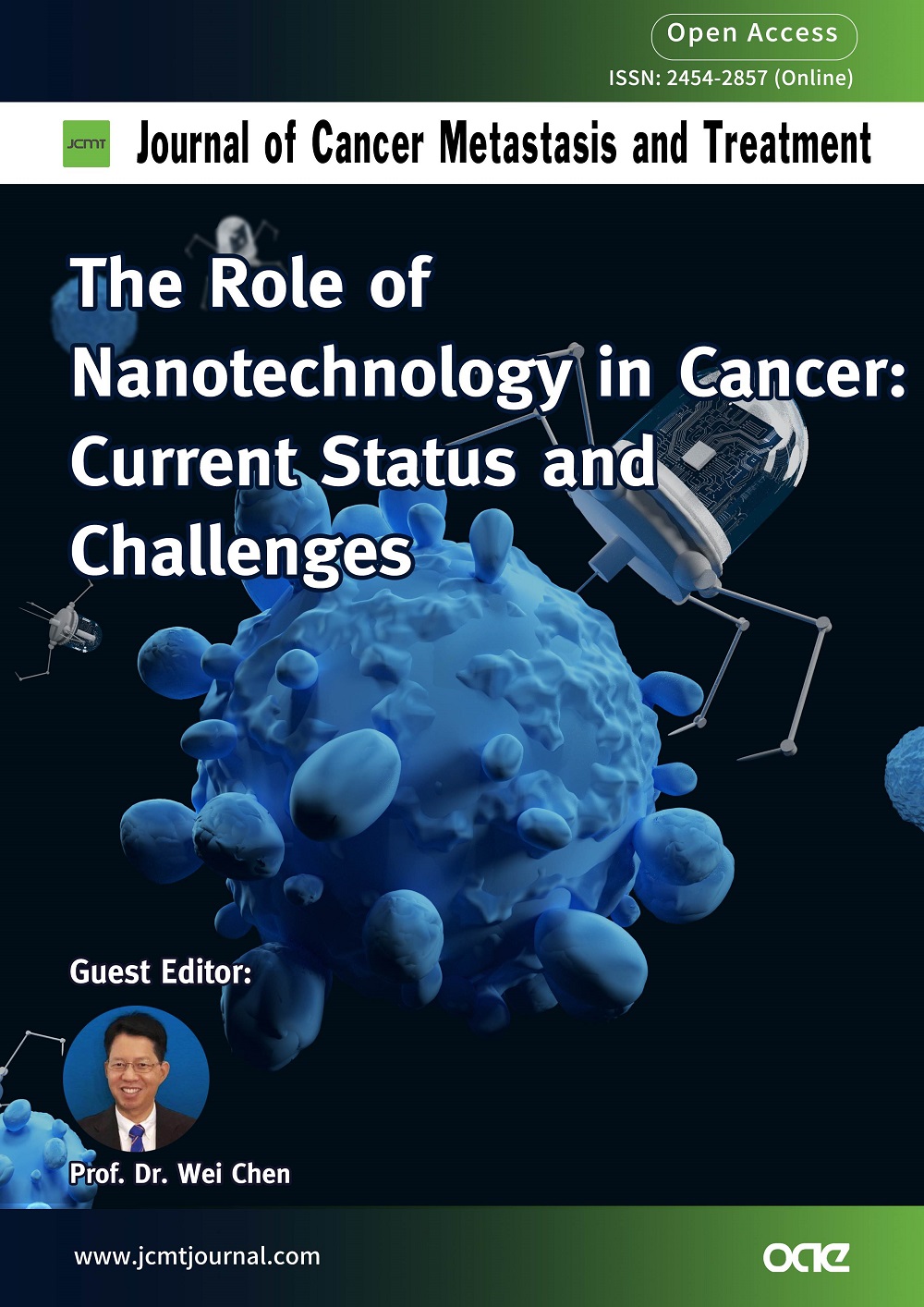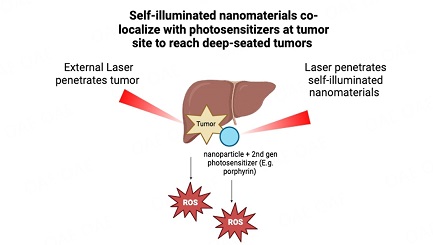
Topic: The Role of Nanotechnology in Cancer: Current Status and Challenges
A Special Issue of Journal of Cancer Metastasis and Treatment
ISSN 2454-2857 (Online) 2394-4722 (Print)
Submission deadline: 31 Dec 2023
Guest Editor(s)
Special Issue Introduction
Cancer is the leading cause of death and poor quality of life worldwide. Despite multiple strategies designed to reduce death, reduce chronic pain, and improve quality of life, the adequacy of these cancer therapies remains challenging. One of the major steps to ensure optimal cancer treatment is the early detection of cancer cells and the application of highly specific drugs to reduce toxicity. As traditional cancer diagnostic and therapeutic tools increase systemic toxicity and refractory disease, nanotechnology is being employed to improve diagnosis and reduce disease severity. In recent years, the rapid development of nanotechnology and its wide application in many fields has provided a new opportunity for the establishment of effective cancer diagnosis and treatment technology. Nanotechnology has already had some applications in the diagnosis and treatment of tumors.
An important part of nanomedicine is nanoparticles loaded with drugs and delivered to specific tissues and cells, which is a new solution for cancer diagnosis and treatment. Chemotherapy is an important treatment for cancer, but this method has many negative effects; while it kills tumor cells, it will destroy surrounding healthy tissues. The nanoparticles-based new strategies such as Chemodynamic therapy and photodynamic therapy have much less toxicity and side effects than Chemotherapy. Radiotherapy is the abbreviation of radiotherapy, which refers to the treatment method that uses various types of radiation (such as alpha, beta, gamma rays and x-rays produced by radioisotopes) to locally irradiate tumor cells to kill them. About 70% of cancer patients need to receive radiotherapy. However, while radiation kills tumor cells, it also damages normal tissues within the irradiated range, resulting in severe side effects of radiotherapy. The applications of nanosensitizers or combination with nanoparticles of X-ray induced nanoparticle oxidative therapy can largely reduce the side effects and increase the efficacy.
In this Special Issue, much attention is paid to the applicability of these nanomaterials in cancer management based on their physicochemical and biological properties. We further embrace the challenges associated with various nanomaterials that limit their usefulness and hinder their translatability in the clinical setting of certain cancer types. Therefore, in this Special Issue for The Role of Nanotechnology in Cancer - Current Status and Challenges, we call for papers on diagnostics, early cancer detection, drug delivery and targeting, particle-based therapeutics, sensing and imaging. We truly wish that this Special Issue can offer some valuable information and guidance for future research directions in cancer nanotechnology.
An important part of nanomedicine is nanoparticles loaded with drugs and delivered to specific tissues and cells, which is a new solution for cancer diagnosis and treatment. Chemotherapy is an important treatment for cancer, but this method has many negative effects; while it kills tumor cells, it will destroy surrounding healthy tissues. The nanoparticles-based new strategies such as Chemodynamic therapy and photodynamic therapy have much less toxicity and side effects than Chemotherapy. Radiotherapy is the abbreviation of radiotherapy, which refers to the treatment method that uses various types of radiation (such as alpha, beta, gamma rays and x-rays produced by radioisotopes) to locally irradiate tumor cells to kill them. About 70% of cancer patients need to receive radiotherapy. However, while radiation kills tumor cells, it also damages normal tissues within the irradiated range, resulting in severe side effects of radiotherapy. The applications of nanosensitizers or combination with nanoparticles of X-ray induced nanoparticle oxidative therapy can largely reduce the side effects and increase the efficacy.
In this Special Issue, much attention is paid to the applicability of these nanomaterials in cancer management based on their physicochemical and biological properties. We further embrace the challenges associated with various nanomaterials that limit their usefulness and hinder their translatability in the clinical setting of certain cancer types. Therefore, in this Special Issue for The Role of Nanotechnology in Cancer - Current Status and Challenges, we call for papers on diagnostics, early cancer detection, drug delivery and targeting, particle-based therapeutics, sensing and imaging. We truly wish that this Special Issue can offer some valuable information and guidance for future research directions in cancer nanotechnology.
Submission Deadline
31 Dec 2023
Submission Information
For Author Instructions, please refer to https://www.oaepublish.com/jcmt/author_instructions
For Online Submission, please login at https://oaemesas.com/login?JournalId=jcmt&SpecialIssueId=jcmt20230216
Submission Deadline: 31 Dec 2023
Contacts: Lily Luo, Assistant Editor, Lily@oaemesas.com






